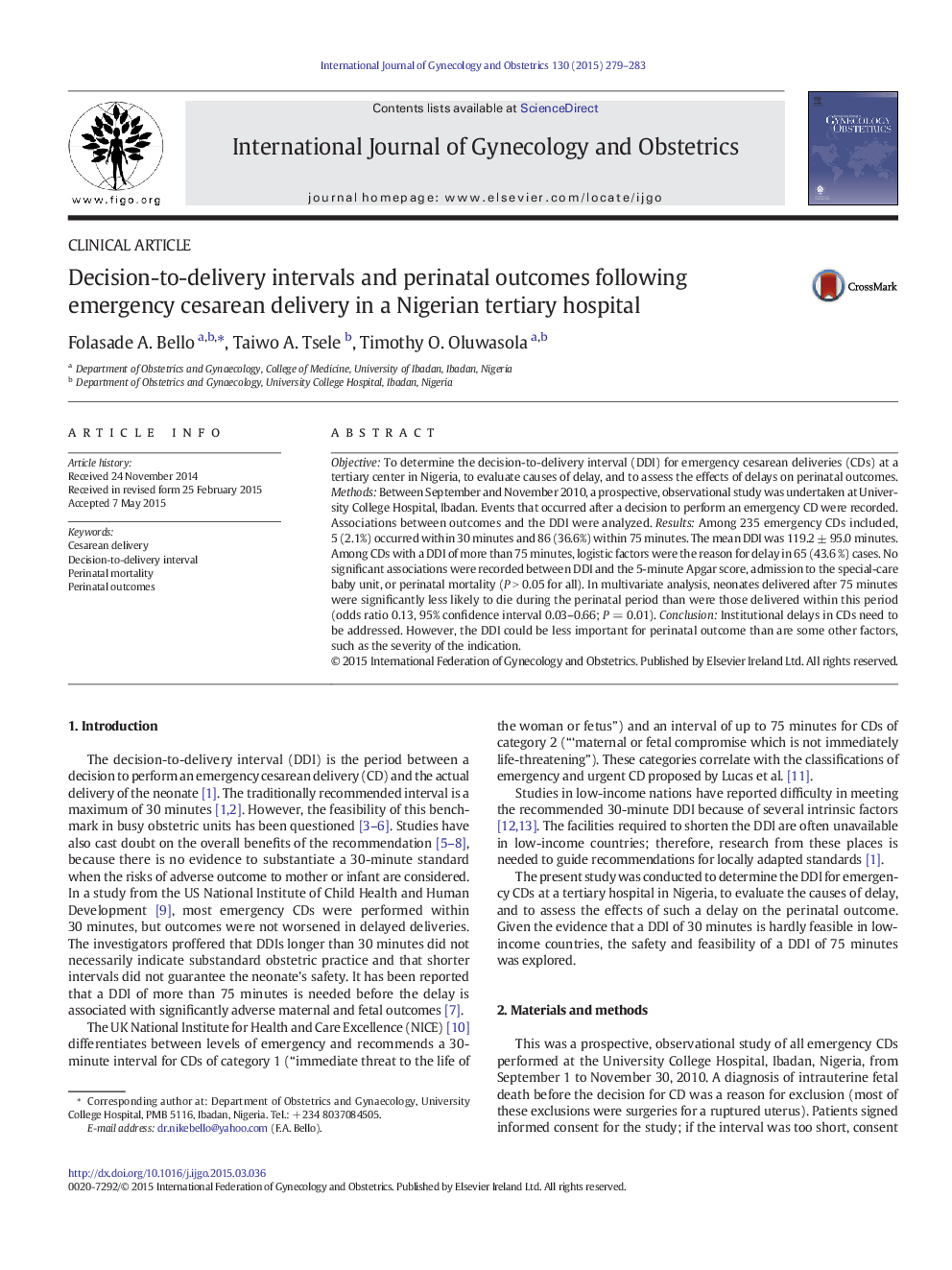| Article ID | Journal | Published Year | Pages | File Type |
|---|---|---|---|---|
| 3952581 | International Journal of Gynecology & Obstetrics | 2015 | 5 Pages |
ObjectiveTo determine the decision-to-delivery interval (DDI) for emergency cesarean deliveries (CDs) at a tertiary center in Nigeria, to evaluate causes of delay, and to assess the effects of delays on perinatal outcomes.MethodsBetween September and November 2010, a prospective, observational study was undertaken at University College Hospital, Ibadan. Events that occurred after a decision to perform an emergency CD were recorded. Associations between outcomes and the DDI were analyzed.ResultsAmong 235 emergency CDs included, 5 (2.1%) occurred within 30 minutes and 86 (36.6%) within 75 minutes. The mean DDI was 119.2 ± 95.0 minutes. Among CDs with a DDI of more than 75 minutes, logistic factors were the reason for delay in 65 (43.6 %) cases. No significant associations were recorded between DDI and the 5-minute Apgar score, admission to the special-care baby unit, or perinatal mortality (P > 0.05 for all). In multivariate analysis, neonates delivered after 75 minutes were significantly less likely to die during the perinatal period than were those delivered within this period (odds ratio 0.13, 95% confidence interval 0.03–0.66; P = 0.01).ConclusionInstitutional delays in CDs need to be addressed. However, the DDI could be less important for perinatal outcome than are some other factors, such as the severity of the indication.
